Description of taste characteristics of Yunnan coffee beans introduction of manors in Yunnan coffee bean production areas
In the global coffee planting industry, a coffee belt has been formed in latitudes 25 north to 25 south, and coffee is grown in 79 countries and regions around the world. Among them, Yunnan small-grain coffee beans are mainly concentrated in high latitude and high altitude areas, while medium-grain coffee beans are mainly concentrated in low-latitude and low-altitude areas. The western and southern parts of Yunnan Province in China lie between latitude 15 and Tropic of Cancer.
The natural conditions of Yunnan are very similar to those of Colombia, with low latitude, high altitude, large temperature difference between day and night, fertile soil, sufficient sunshine and abundant rainfall. This is a good thing for coffee. Cool nights at high altitudes will slow down the growth of coffee, lengthen the ripening cycle and accumulate more flavor substances. Yunnan small coffee beans are strong but not bitter, fragrant but not strong, slightly fruity, and belong to the unique flavor at the northern end of the world coffee territory.
After the reform and opening up, a large area of Yunnan takes coffee as the economic pillar of crops. However, due to inconvenient transportation, backward planting technology, low level of practitioners, mainly retail planting and other factors, the development is not large-scale. It has been used as a raw material for instant coffee and low-grade coffee for a long time, and the selling price has never gone up.
Qianjie Coffee Yunnan Coffee Manor Coffee beans
In the new production season of Yunnan coffee beans in 2021, Qianjie Coffee processed a small number of Yunnan tin card sun-cured coffee beans! However, due to the small quantity, Qianjie Coffee just put this batch of coffee beans into the event as a "limited quantity" for everyone to taste! Qianjie Coffee is often shared with its own sun-tanned iron pickup coffee beans in the store as a trial drink for different guests to taste fresh.
By the way, in the bean list of Qianjie coffee, there is also a Yunnan washed iron card Huaguoshan coffee bean supply.
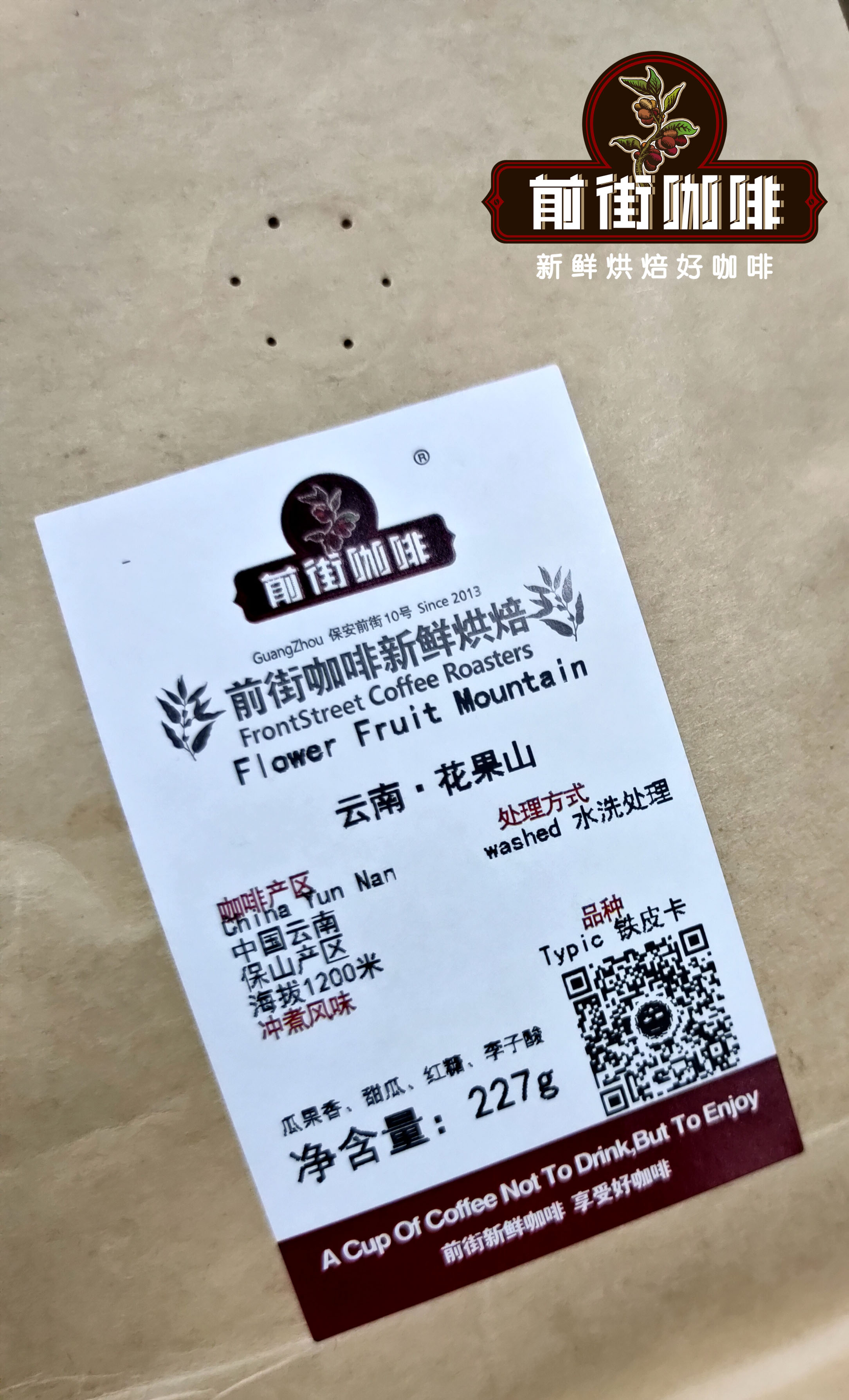
Nowadays, there are more choices in the treatment of coffee beans in Yunnan. Just by optimizing the details, a variety of different treatments have been developed.
The baristas of Qianjie Coffee believe that the traditional washing and sun treatment can best express the original taste of a coffee producing area. Speaking of which, Qianjie has to tell you that there will be a lot of washed beans on our bean list, such as Ethiopia, Panama, Colombia and so on.
We know that there are three main factors that affect the taste of coffee: the origin, the variety and the way of handling.
Zhu Kula used to be a little-known village. This isolated, remote and poor ancient village, deep in the mountains northeast of Pingchuan Town, Binchuan County, Dali City, Yunnan Province, is surrounded by the Yupao River, a tributary of the Jinsha River, and is the junction of Chuxiong, Dali and Lijiang.
According to the Chronicles of Binchuan County, Father Tian Deneng planted coffee trees here in order to drink coffee and taught local people to make coffee. In order to facilitate himself and other missionaries to drink coffee, Tian Deneng personally planted coffee trees in the corner of the wall after the church was built.
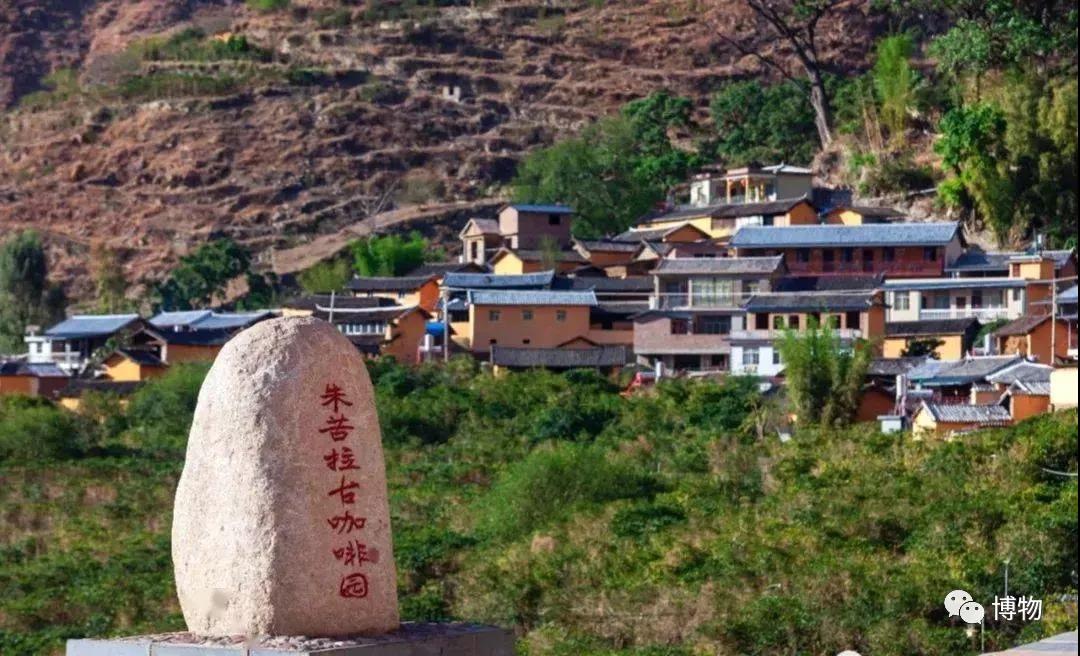
Photo source: blog objects
Zhukula Village still retains a planting area of 13 mu, of which there are 24 coffee trees over 100 years old, which is the oldest coffee forest in China. Through many studies of coffee culture at the national and provincial level, Zhukula coffee is known as the "living fossil" of Chinese coffee. After more than 100 years of development, Yunnan coffee has established its dominant position in China in terms of planting area and coffee bean output.
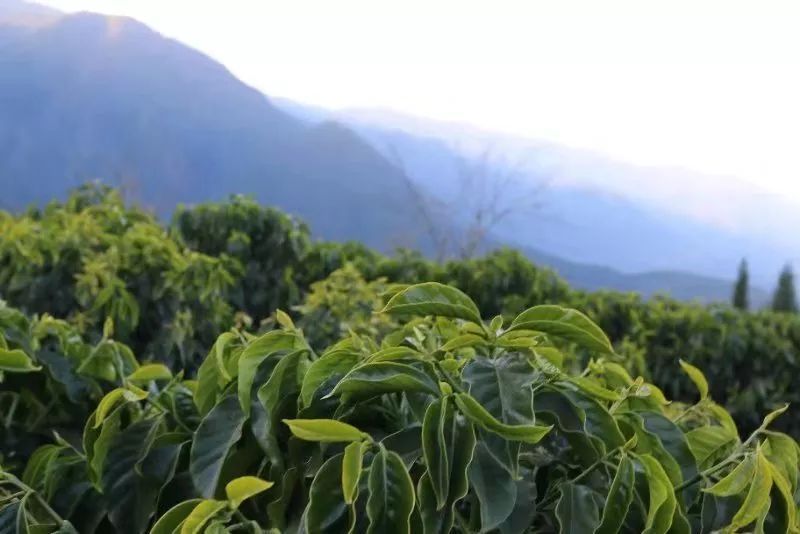
Introduction of Qianjie Coffee producing area in Yunnan
Let's tell the stories about coffee in Yunnan one by one.
First of all, Yunnan Province also produces coffee in Banna, Wenshan, Baoshan, Lincang, Dehong and other places. Among them, Lincang, Baoshan, Pu'er and Dehong are four important coffee producing areas in Yunnan, which are basically distributed in the southwest of Yunnan Province.
One of the key points to mention is Lincang.
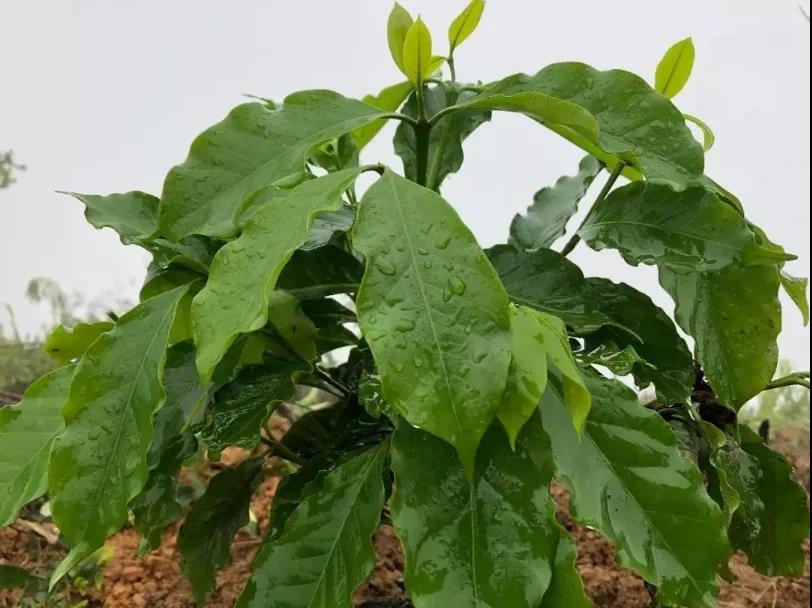
Lincang
Lincang is located in the southwest of Yunnan Province, with the Tropic of Cancer running through the south, Pu'er to the east, Dali to the north, Baoshan to the west, and Myanmar to the southwest. it is a bright pearl in the southwest of the motherland because it is close to the Lancang River. The annual average temperature in Lincang is between 16.8 ℃ and 17.2℃. The dry and wet season is obvious and the sunshine is sufficient.
Qianjie Coffee has set up its own manor in Lincang, Yunnan Province. Then Street Coffee produced its first home-grown beans before 2021 this year.
Baoshan
Baoshan, Yunnan Province is located in the low-latitude plateau, due to the special geographical location, formed a "one mountain is divided into four seasons, ten miles of different days" three-dimensional climate, such gas can be said to be very suitable for growing coffee. It has been more than 60 years since Baoshan began to grow coffee on a large scale as early as 1952. The area already has 5000 mu of coffee park, which is the best coffee producing area in Asia. Statistics show that China exported 104900 tons of coffee in 2017, with an export value of US $646 million. The quality of coffee grown here at the highest altitude is comparable to that of the No. 1 coffee bean in the Blue Mountains of Jamaica. Here, it is also rich in the world's most expensive Kopi Luwak.
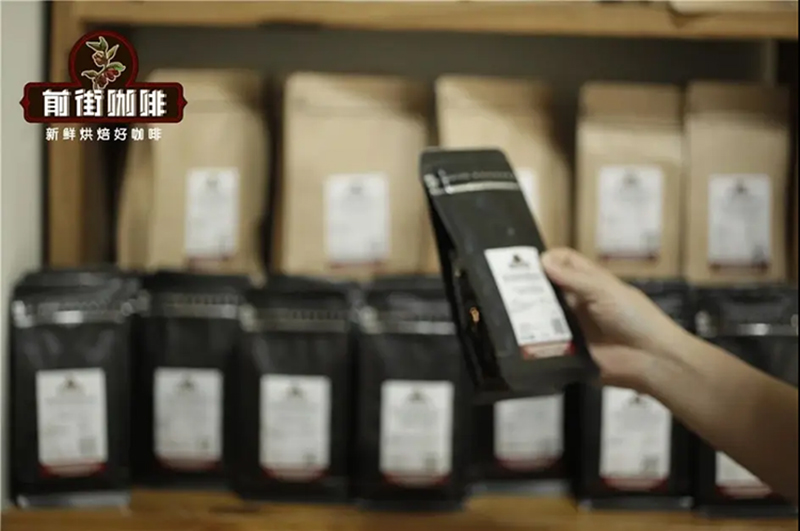
Among them, the coffee output of Yunnan Province reached 136000 tons, accounting for more than 95% of the national coffee output, and the export volume ranked the highest in the country, at 60700 tons. Coffee industry is also the most sound and mature industry of market economy in the leading industry of Baoshan municipal government since the founding of New China. In order to better develop this industry, Baoshan has made a variety of attempts in this regard, including the launch of the Yunnan Baoshan Coffee World Project.
Baoshan area has a long history of growing coffee, and it is recognized as the best small-grain coffee producing area, and it is one of the coffee producing areas with good coffee quality in the country and even in the world.
Baoshan, Yunnan Province is located in the low-latitude plateau, due to the special geographical location, formed a "one mountain is divided into four seasons, ten miles of different days" three-dimensional climate, such a climate is very suitable for growing coffee. It can be said that the quality of coffee grown here at the highest altitude is comparable to that of Jamaican Blue Mountain coffee. Here, it is also rich in the world's most expensive Kopi Luwak.
At present, Katim coffee is the most widely cultivated in the coffee producing areas of Yunnan. In addition, in Baoshan area, there are still a small number of iron pickup coffee and bourbon coffee. Although both Ironpickup and bourbon belong to Arabica species, they are very different in nature.
Next, let's talk about the three kinds of coffee beans: Ironka, bourbon and Katim.
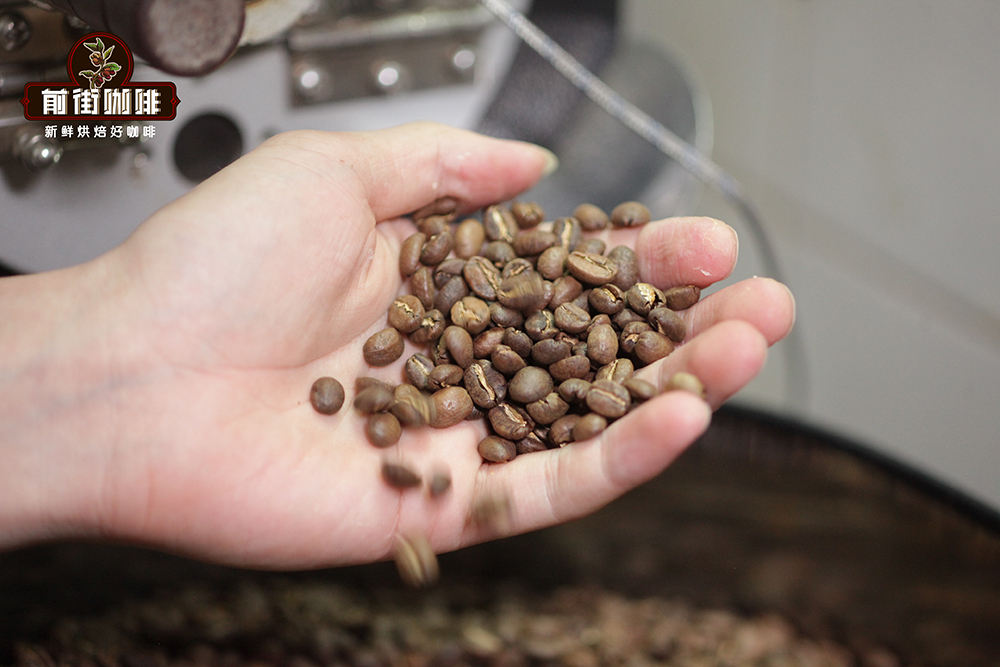
Catimor Katim coffee bean species
Strictly speaking, Katim coffee beans are not of pure Arabica ancestry. It is a hybrid of Timor (robusta coffee) and Caturra kadura (a mutant of bourbon), so catimor Katim has a 25% robusta pedigree.
It is because it contains 25% Robusta pedigree that determines the taste defects of Katim coffee-not rich in aroma, bitter, prone to astringency and more irritating mildew.
Typica Iron pickup Coffee beans
Originating from the southeastern part of Ethiopia and Sudan, the iron pickup bean is the most widely cultivated variety of coffee in the western hemisphere. its plants are sturdy, but it is not resistant to light. the top leaf of the iron pickup is red and copper, which is also known as red top coffee. At present, many commercial improvements are derived from this.
Iron pickup coffee beans are recognized as a variety of fine coffee. However, the output is very low, and it is vulnerable to corrosion, which requires more manpower management and high cost of management and protection. Excellent manor beans such as the Blue Mountains of Jamaica, Manning of Sumatra and Kona of Hawaii all belong to Tibika.
Bourbon bourbon coffee bean species
It is a variant of iron pickup, with green top buds and tender leaves, also known as green top coffee. Bourbon coffee beans have excellent aroma and rich levels of resistance to diseases and insect pests, and the yield is very low, so many Central and South American countries will choose Kaddura, a natural variant of bourbon, or other more disease-resistant and higher-yielding coffee varieties.
Round coffee beans were introduced from Yemen to the island of Reunion by the French in the 18th century. At that time, the island of Reunion was still named Bourbon, so it was named Bourbon. Then in 1860, bourbon beans were introduced to Brazil and quickly spread to countries in Central and South America, where they still grow and produce bourbon beans.
The output of Tieka coffee beans is only 1 / 3 of that of Katim coffee beans, so the reason why it is more expensive. At the same time, tin card and bourbon are also very easy to get rust, which is one of the reasons why coffee farmers are reluctant to grow Arabica.
Because the yields of Tieka coffee beans and bourbon coffee beans are low, they are susceptible to disease, and the cost of management and protection is high, which means that planting will take longer to explore. At this stage, coffee farmers do not have the consciousness of "boutique coffee", but even if they know about fine coffee, when it comes to cutting down old trees and replanting them for a few years, coffee farmers will only stay away.
Qianjie coffee Yunnan iron pickup coffee beans
About 5-6 years ago, Qianjie Coffee began to quote the iron pickup card in Baoshan, Yunnan Province, and made it into a representative of Yunnan coffee beans-Yunnan Huaguoshan coffee beans.
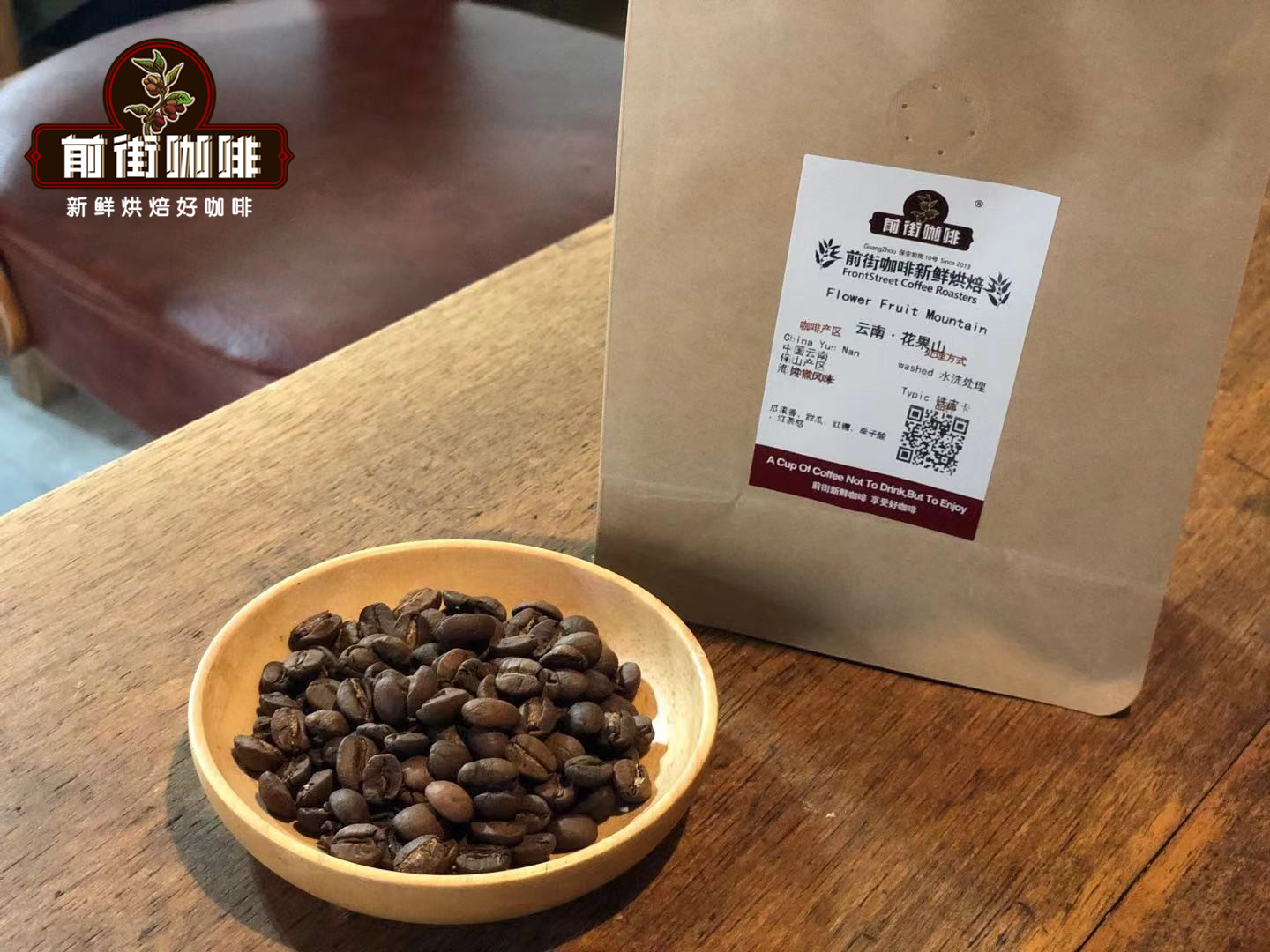
Qianjie coffee Yunnan Huaguoshan coffee beans
Coffee producing area: Baoshan
Variety of coffee: iron pickup
Altitude: 1200m
Grade: AA
Treatment: washing
Roasting record of Yunnan Huaguoshan coffee beans in Qianjie Coffee
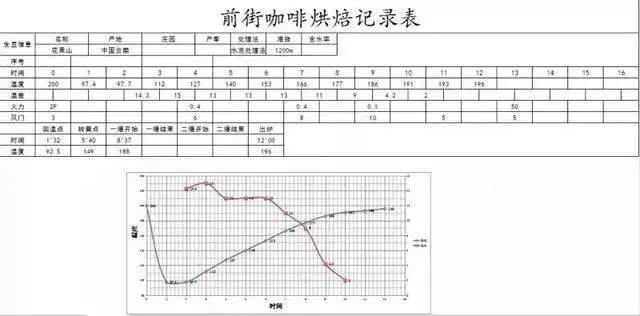
The moisture content of beans is 10.9%, so the baking plan is to put 200 degrees into the beans, then fire the small throttle to speed up dehydration, and open the stroke door and medium heat at the end of the dehydration stage so that Maillard's reaction time is not too hasty and will be released in 3 minutes.
Temperature recovery point: 32,92.5 ℃, yellowing point: 5 minutes, 40 ℃, 148.5 ℃, explosion: 8 minutes, 59 seconds, 188. ℃, development 3 minutes: 12 minutes, 39 minutes, 00,196 ℃
Qianjie Coffee Yunnan Huaguoshan Coffee Cup record
Rich aromas of fruit, melon, herbaceous plants, supple in the mouth, middle nuts, milk chocolate, lively and bright sour plums at the end, good balance, medium thickness, full body, sweet and sour layers of temperature from hot to warm, sweet then sour, apricot, citrus sour, aftertaste black tea, a little brown sugar.
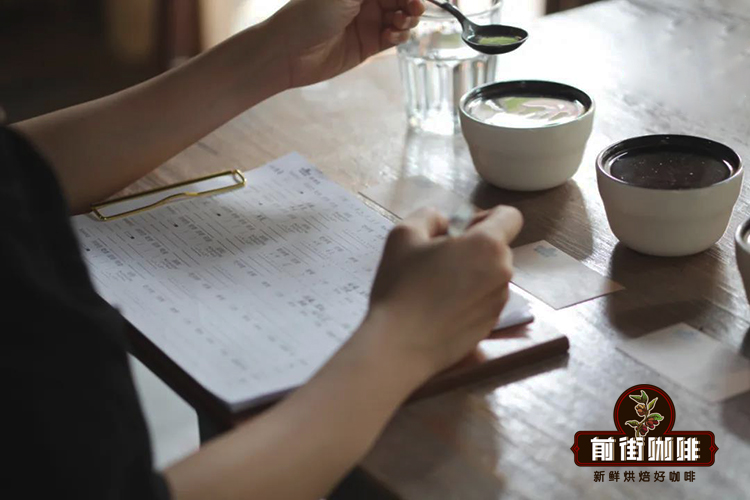
Qianjie Coffee Yunnan small Coffee Bean, Yunnan Huaguoshan Coffee Bean brewing experience sharing
Qianjie coffee is recommended to be brewed with V60 filter cup. Because the mouth of the V60 cup is relatively large, coupled with its unique spiral curve ribs, the air can be discharged more easily and the extraction quality can be improved. The taste may not be thick enough, but its high concentration brings out the acidity and obvious aroma of Yunnan coffee is one of its major features.
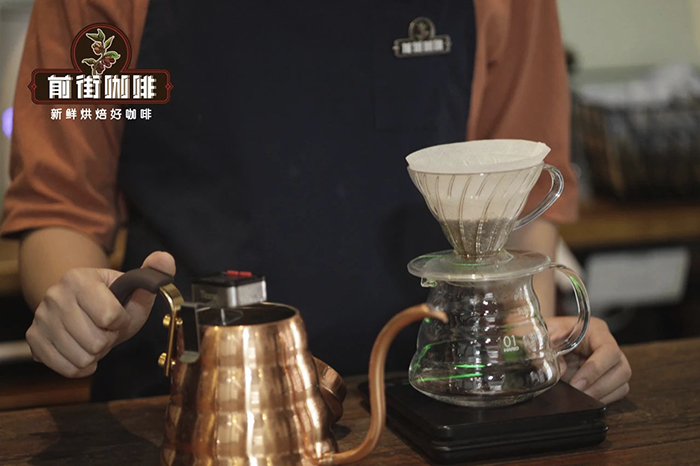

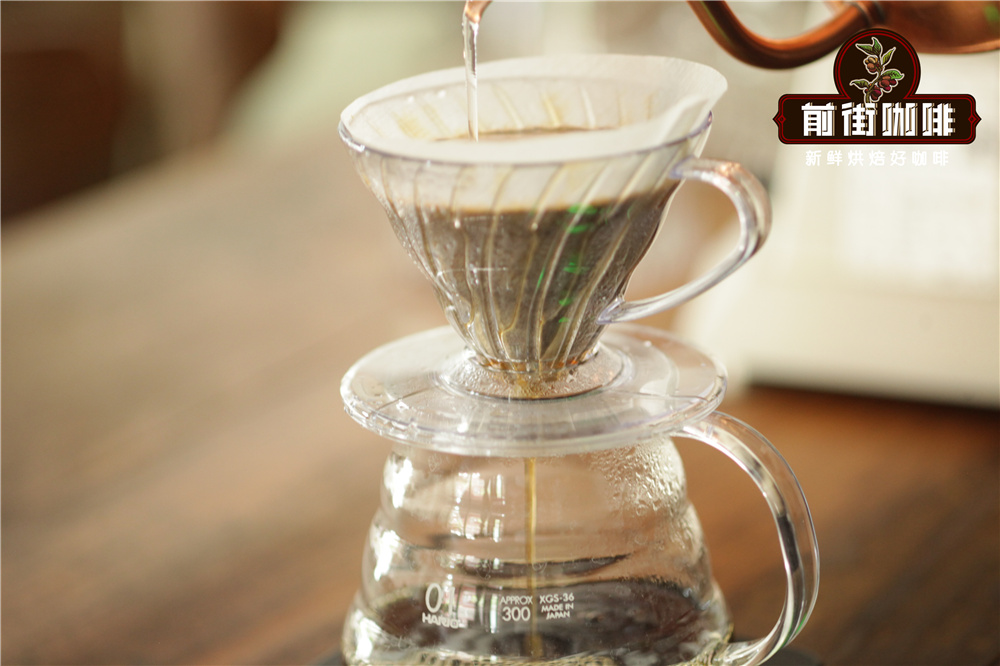
Filter cup: V60 # 01
Water temperature: 90-92 ℃
Powder / water ratio: 1:15
Degree of grinding: medium and fine grinding, that is, the thickness of fine sugar (57% of the pass rate of Chinese standard No. 20 screen)
Flushing and cooking technique: segmented extraction. 30 grams of water is steamed for 30 seconds, small water is injected around the circle to 124 grams, the water level is about to be exposed when the powder bed is about to be exposed, continue to inject water to 227 grams to stop water injection, and the filter cup is removed when the water level is about to be exposed to the powder bed, and the extraction time is 2 minutes.
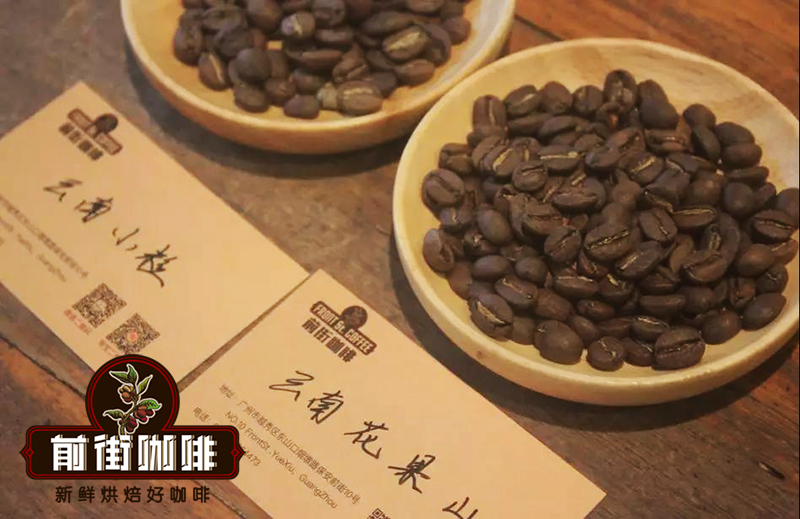
Qianjie Coffee Yunnan small Coffee beans
Producing area: Baoshan, Yunnan
Altitude: 1200m
Treatment method: washing
Variety: Katim
Qianjie Coffee Flavor description of Yunnan small Coffee beans
It smells nutty, with herbs, chocolate and caramel in the mouth, with a hint of acidity in the finish.
Qianjie Coffee description of Yunnan Huaguoshan Coffee Bean Flavor
The dry aroma has a hint of citrus acidity and nutty aromas. it tastes like plum, citrus acidity and nutty flavors, sweet melons and brown sugar, with a hint of black tea in the finish. The overall flavor level is relatively rich.
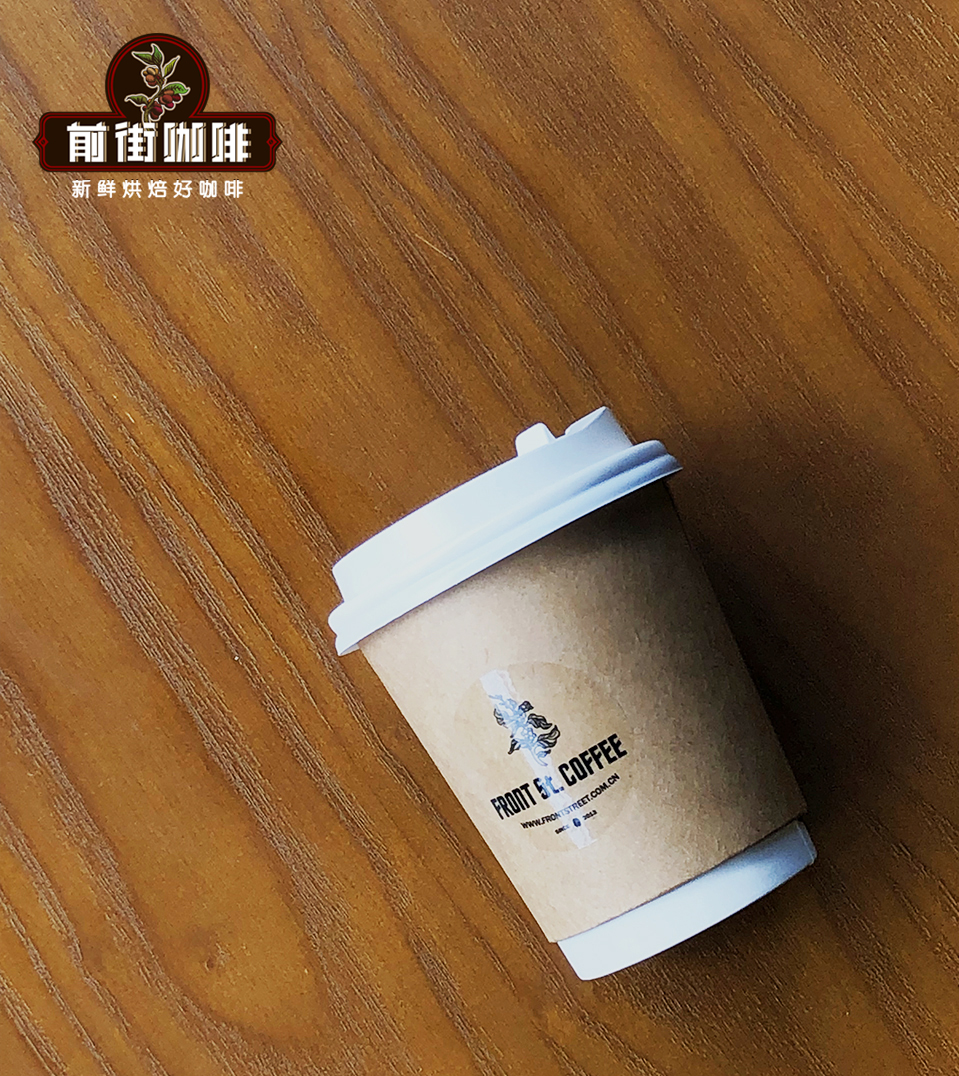
For more information about coffee beans, please follow the coffee workshop (Wechat official account cafe_style) and exchange professional coffee knowledge. Please add WeChat kaixinguoguo0925.
Important Notice :
前街咖啡 FrontStreet Coffee has moved to new addredd:
FrontStreet Coffee Address: 315,Donghua East Road,GuangZhou
Tel:020 38364473
- Prev

The treatment of Honduran coffee beans the taste grinding scale variety producing area
The processing method of Honduran coffee beans taste grinding scale varieties produced in Honduras coffee bean particles are large, uniform in size, uniform in color and glossy. In order to facilitate harvesting, farmers will prune the coffee trees to no more than 150 centimeters, because if they grow too high, they have to set up ladders to pick, which is not only time-consuming, but also may damage the trees by bending branches. Due to
- Next

Introduction to the producing area of Katim Coffee Bean by the method of Grinding and Calibration
Katim coffee bean flavor characteristics taste grinding scale treatment varieties production areas introduce coffee semi-shade tree species, it is recommended to establish a moderate shade degree of 3040%. Generally speaking, it is difficult to solve the problem of water conservancy irrigation in the site environment of growing coffee in our province. The water demand season is in the dry season, and it is also the season to compete with other crops for water. It is not a good thing to completely rely on irrigation to meet the water demand of coffee field.
Related
- Detailed explanation of Jadeite planting Land in Panamanian Jadeite Manor introduction to the grading system of Jadeite competitive bidding, Red bid, Green bid and Rose Summer
- Story of Coffee planting in Brenka region of Costa Rica Stonehenge Manor anaerobic heavy honey treatment of flavor mouth
- What's on the barrel of Blue Mountain Coffee beans?
- Can American coffee also pull flowers? How to use hot American style to pull out a good-looking pattern?
- Can you make a cold extract with coffee beans? What is the right proportion for cold-extracted coffee formula?
- Indonesian PWN Gold Mandrine Coffee Origin Features Flavor How to Chong? Mandolin coffee is American.
- A brief introduction to the flavor characteristics of Brazilian yellow bourbon coffee beans
- What is the effect of different water quality on the flavor of cold-extracted coffee? What kind of water is best for brewing coffee?
- Why do you think of Rose Summer whenever you mention Panamanian coffee?
- Introduction to the characteristics of authentic blue mountain coffee bean producing areas? What is the CIB Coffee Authority in Jamaica?

